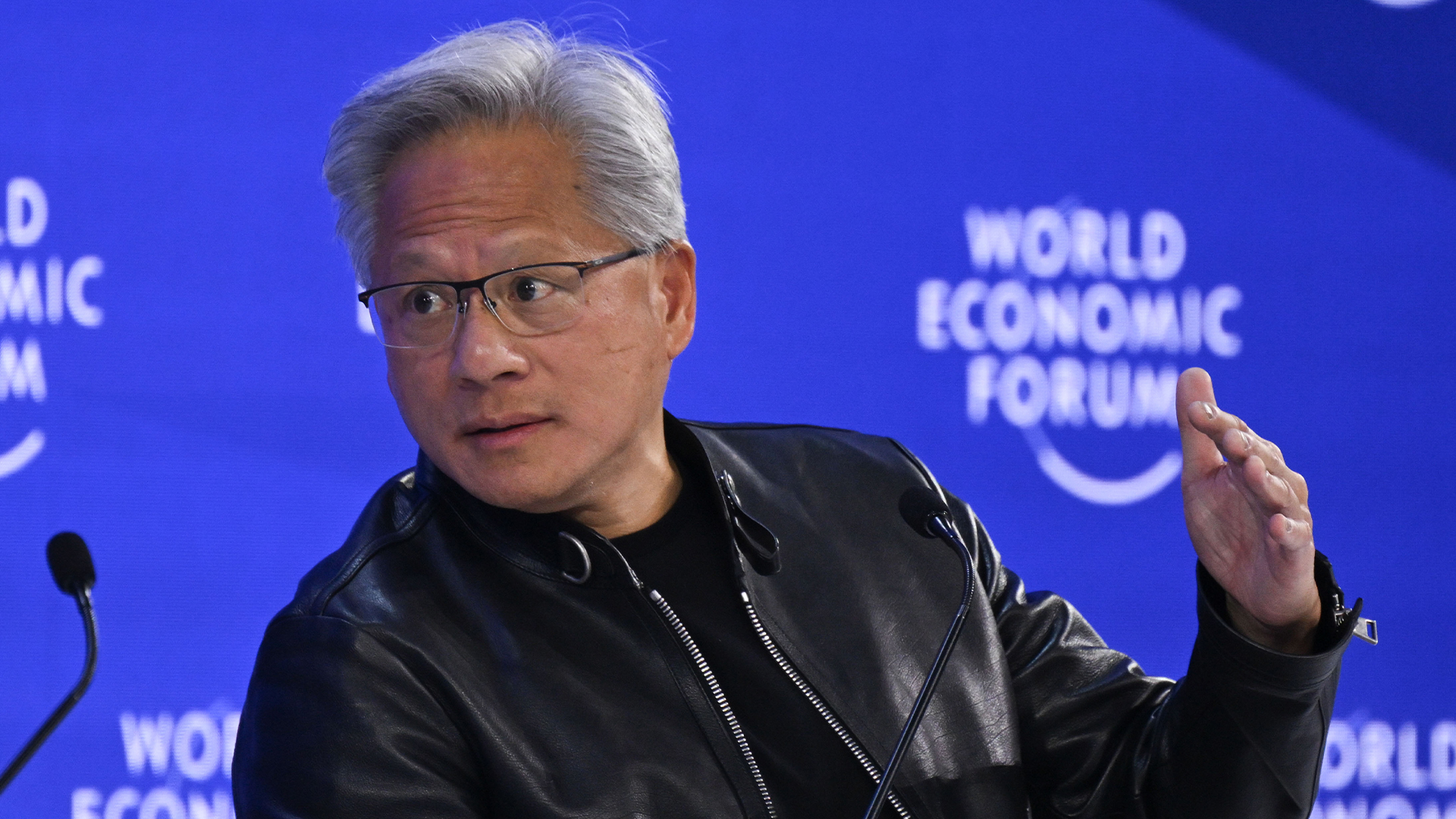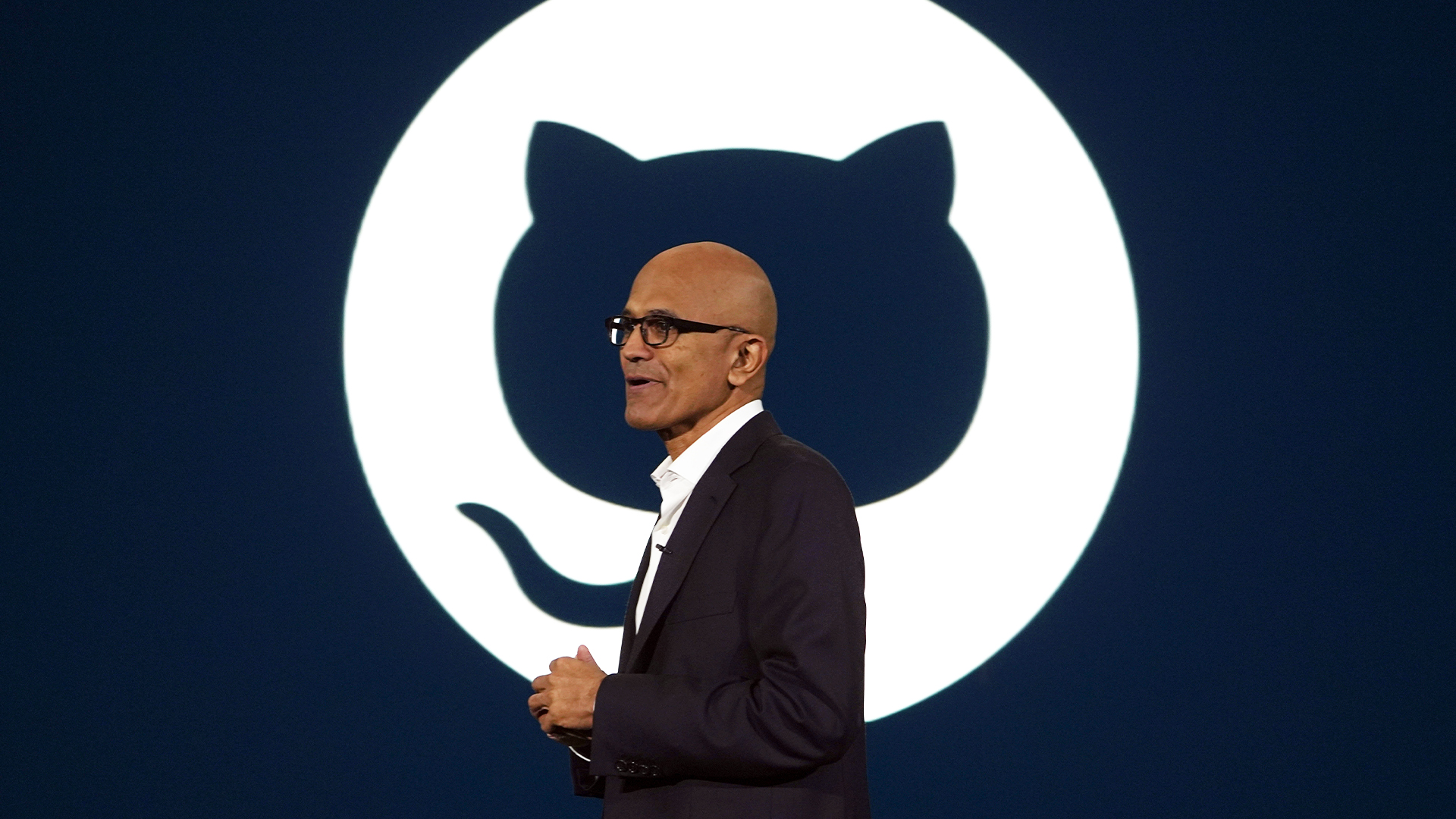Microsoft’s Windows chief wants to turn the operating system into an ‘agentic OS' – users just want reliability and better performance
While Microsoft touts an AI-powered future for Windows, users want the tech giant to get back to basics


Sign up today and you will receive a free copy of our Future Focus 2025 report - the leading guidance on AI, cybersecurity and other IT challenges as per 700+ senior executives
You are now subscribed
Your newsletter sign-up was successful
Microsoft Windows chief Pavan Davuluri has made no secret of the tech giant’s plans for the future of Windows, having previously claimed the next version of the operating system will draw upon AI to offer users a more “multi-modal” experience.
With Microsoft’s annual Ignite conference looming this week, Davuluri has once again been banging the drum for an AI-infused Windows operating system, but users weren’t exactly pleased.
Promoting an upcoming session at the conference in a post on X earlier this month, Davuluri said Windows is “evolving into an agentic OS, connecting devices, cloud, and AI to unlock intelligent productivity and secure work anywhere”.
The buzzword-laden post prompted a fierce backlash, with users claiming “no one wants this”. Others, meanwhile, questioned why the tech giant is focusing on packing the operating system with new AI features instead of improving functionality, reliability, and performance.
Gergely Orosz, software engineer, author, and curator of the Pragmatic Engineer newsletter, pounced on the tweet, suggesting the automation push at Microsoft could alienate developers using the OS.
“Can’t see any reason for sq engineers to choose Windows with this weird direction they are doubling down on,” he wrote.
“So odd because Microsoft has building dev tools in their DNA…their OS doesn’t look like anything a builder who wants OS control would choose.”
Sign up today and you will receive a free copy of our Future Focus 2025 report - the leading guidance on AI, cybersecurity and other IT challenges as per 700+ senior executives
Davuluri acknowledged the criticism in a response to Orosz’s post, noting that he had “read through the comments and see focus on things like reliability, performance, ease of use and more”.
The Windows lead insisted the company “cares deeply about developers” and that it still has “work to do on the experience” for developers and “power users”.
Exact details on how Microsoft plans to address these issues weren’t detailed in the response, however.
What on earth is an agentic OS?

‘Agentic OS’ is a new term – so new that we recently did a whole podcast episode about it, live from Dreamforce 2025.
In the case of Salesforce, the term has some tangible meaning. The CRM giant has spent the past year integrating its agentic AI platform Agentforce across its offerings, and at Dreamforce 2025 unveiled sweeping changes to Slack that allow users to more closely control Salesforce agents through the collaboration platform.
Far from a buzzword, ‘agentic OS’ is used here as a pretty effective description of the vision Salesforce has for Slack’s future.
No one’s arguing that Slack will literally become an operating system. Instead, users are invited to treat the platform as a sort of natural language creator and scheduler for AI agents, a search engine for enterprise data, and a platform enhanced with built-in chat summarization powered by yet more agents.
With Windows, it’s trickier to nail down exactly what Microsoft is planning. Regardless of the fact that it’s increasingly swamped with AI features, there haven’t been any clear indications of how Windows as a whole will help users to create, augment, or launch AI agents.
With AI hype at fever pitch and workers continuing to voice doubts over promises that the technology will meaningfully improve their productivity, it’s important that AI developers speak as clearly as possible about their products.
Bandying around vague terms is a sure-fire way to be accused of peddling snake-oil or making empty promises. Worse still, it could erode the meaning of nascent AI terminology and make it a meaningless expression before the first products of its kind ever get off the ground.
Make sure to follow ITPro on Google News to keep tabs on all our latest news, analysis, and reviews.
MORE FROM ITPRO

Ross Kelly is ITPro's News & Analysis Editor, responsible for leading the brand's news output and in-depth reporting on the latest stories from across the business technology landscape. Ross was previously a Staff Writer, during which time he developed a keen interest in cyber security, business leadership, and emerging technologies.
He graduated from Edinburgh Napier University in 2016 with a BA (Hons) in Journalism, and joined ITPro in 2022 after four years working in technology conference research.
For news pitches, you can contact Ross at ross.kelly@futurenet.com, or on Twitter and LinkedIn.
-
 Anthropic Labs chief Mike Krieger claims Claude is essentially writing itself – and it validates a bold prediction by CEO Dario Amodei
Anthropic Labs chief Mike Krieger claims Claude is essentially writing itself – and it validates a bold prediction by CEO Dario AmodeiNews Internal teams at Anthropic are supercharging production and shoring up code security with Claude, claims executive
-
 AI-generated code is fast becoming the biggest enterprise security risk as teams struggle with the ‘illusion of correctness’
AI-generated code is fast becoming the biggest enterprise security risk as teams struggle with the ‘illusion of correctness’News Security teams are scrambling to catch AI-generated flaws that appear correct before disaster strikes
-
 ‘Not a shortcut to competence’: Anthropic researchers say AI tools are improving developer productivity – but the technology could ‘inhibit skills formation’
‘Not a shortcut to competence’: Anthropic researchers say AI tools are improving developer productivity – but the technology could ‘inhibit skills formation’News A research paper from Anthropic suggests we need to be careful deploying AI to avoid losing critical skills
-
 A torrent of AI slop submissions forced an open source project to scrap its bug bounty program – maintainer claims they’re removing the “incentive for people to submit crap”
A torrent of AI slop submissions forced an open source project to scrap its bug bounty program – maintainer claims they’re removing the “incentive for people to submit crap”News Curl isn’t the only open source project inundated with AI slop submissions
-
 ‘This is a platform shift’: Jensen Huang says the traditional computing stack will never look the same because of AI – ChatGPT and Claude will forge a new generation of applications
‘This is a platform shift’: Jensen Huang says the traditional computing stack will never look the same because of AI – ChatGPT and Claude will forge a new generation of applicationsNews The Nvidia chief says new applications will be built “on top of ChatGPT” as the technology redefines software
-
 Not keen on Microsoft Copilot? Don’t worry, your admins can now uninstall it – but only if you've not used it within 28 days
Not keen on Microsoft Copilot? Don’t worry, your admins can now uninstall it – but only if you've not used it within 28 daysNews The latest Windows 11 Insider Preview will include a policy for removing the app entirely — but only in certain conditions
-
 So much for ‘trust but verify’: Nearly half of software developers don’t check AI-generated code – and 38% say it's because it takes longer than reviewing code produced by colleagues
So much for ‘trust but verify’: Nearly half of software developers don’t check AI-generated code – and 38% say it's because it takes longer than reviewing code produced by colleaguesNews A concerning number of developers are failing to check AI-generated code, exposing enterprises to huge security threats
-
 Microsoft is shaking up GitHub in preparation for a battle with AI coding rivals
Microsoft is shaking up GitHub in preparation for a battle with AI coding rivalsNews The tech giant is bracing itself for a looming battle in the AI coding space

